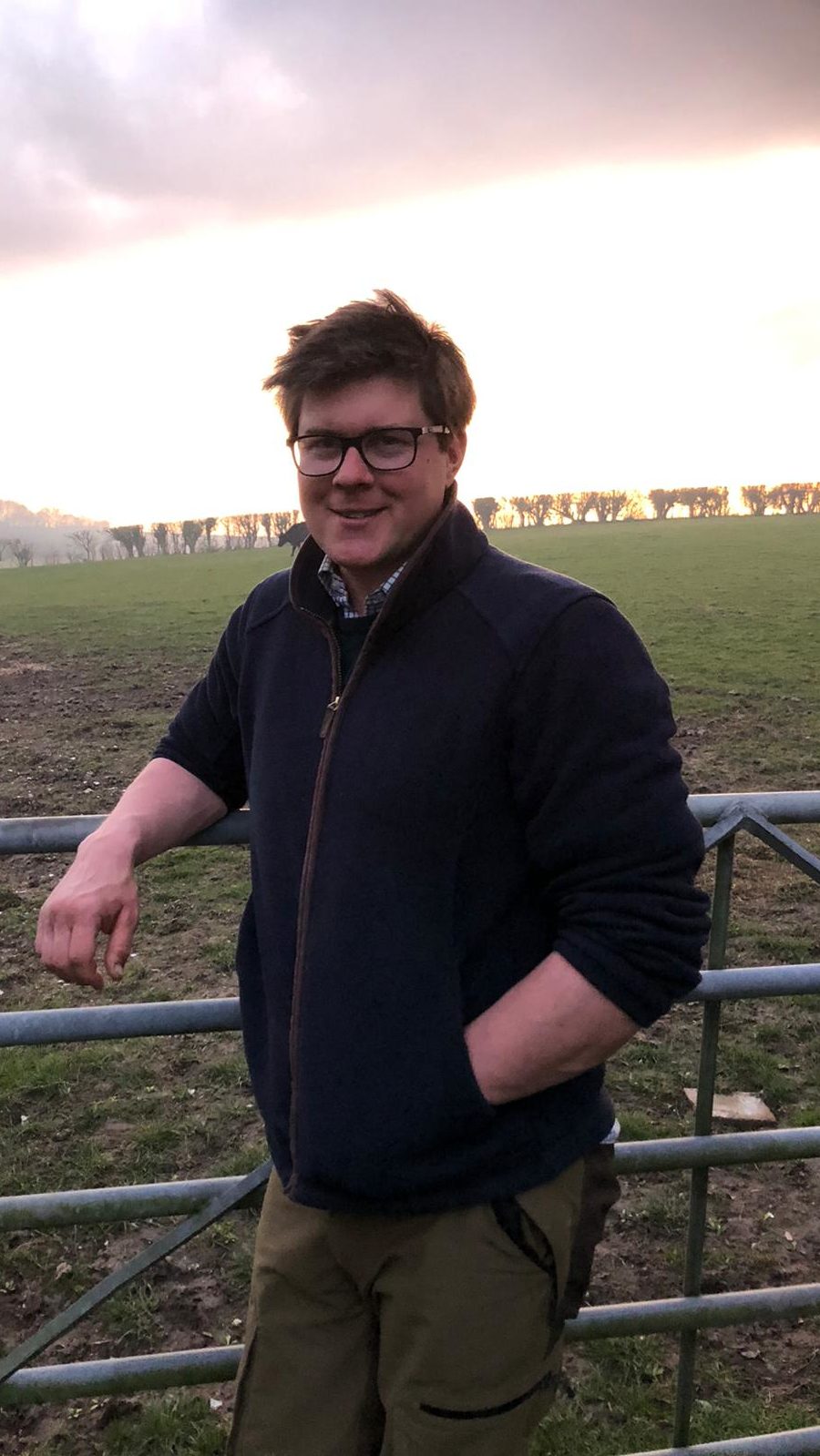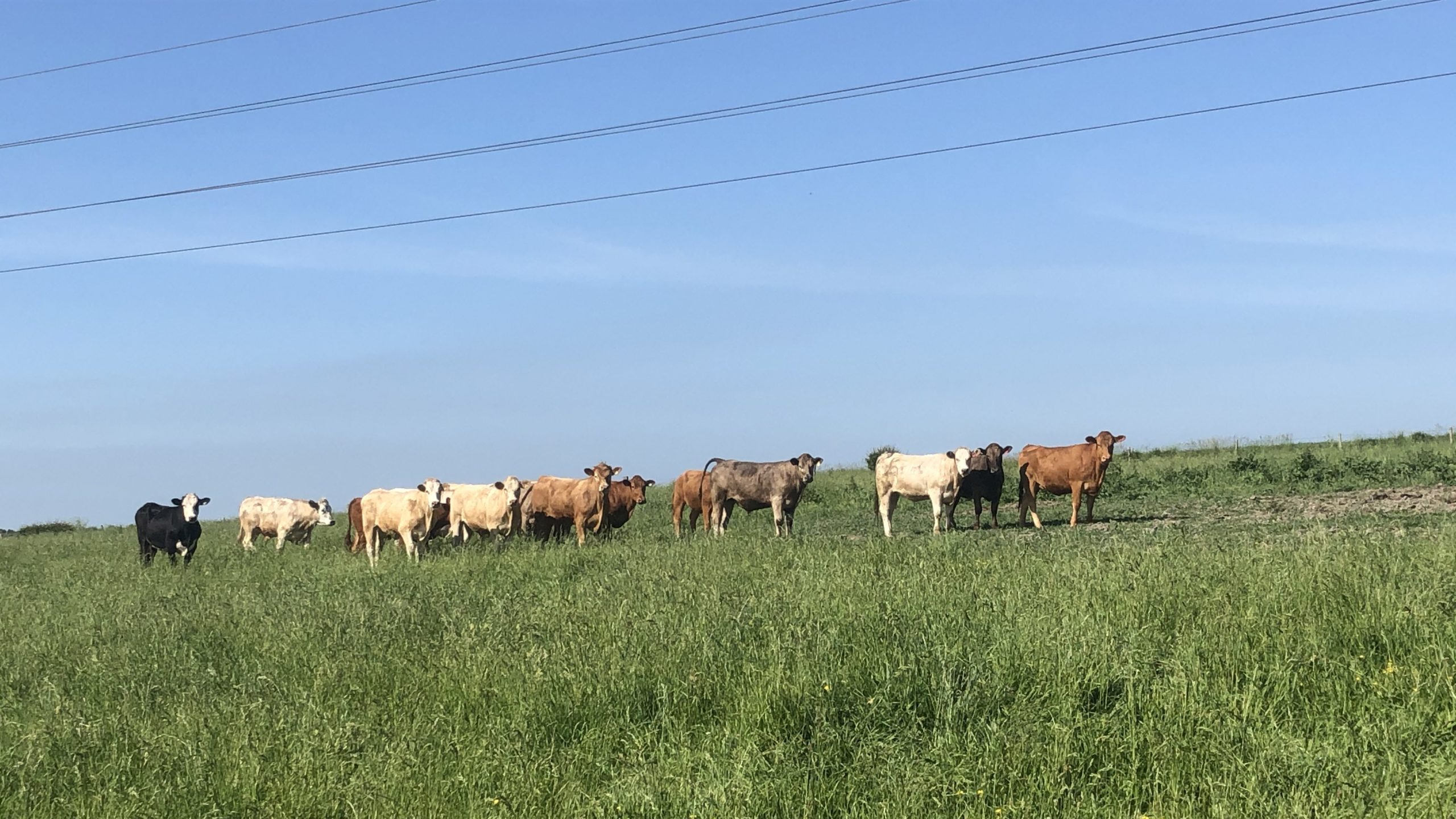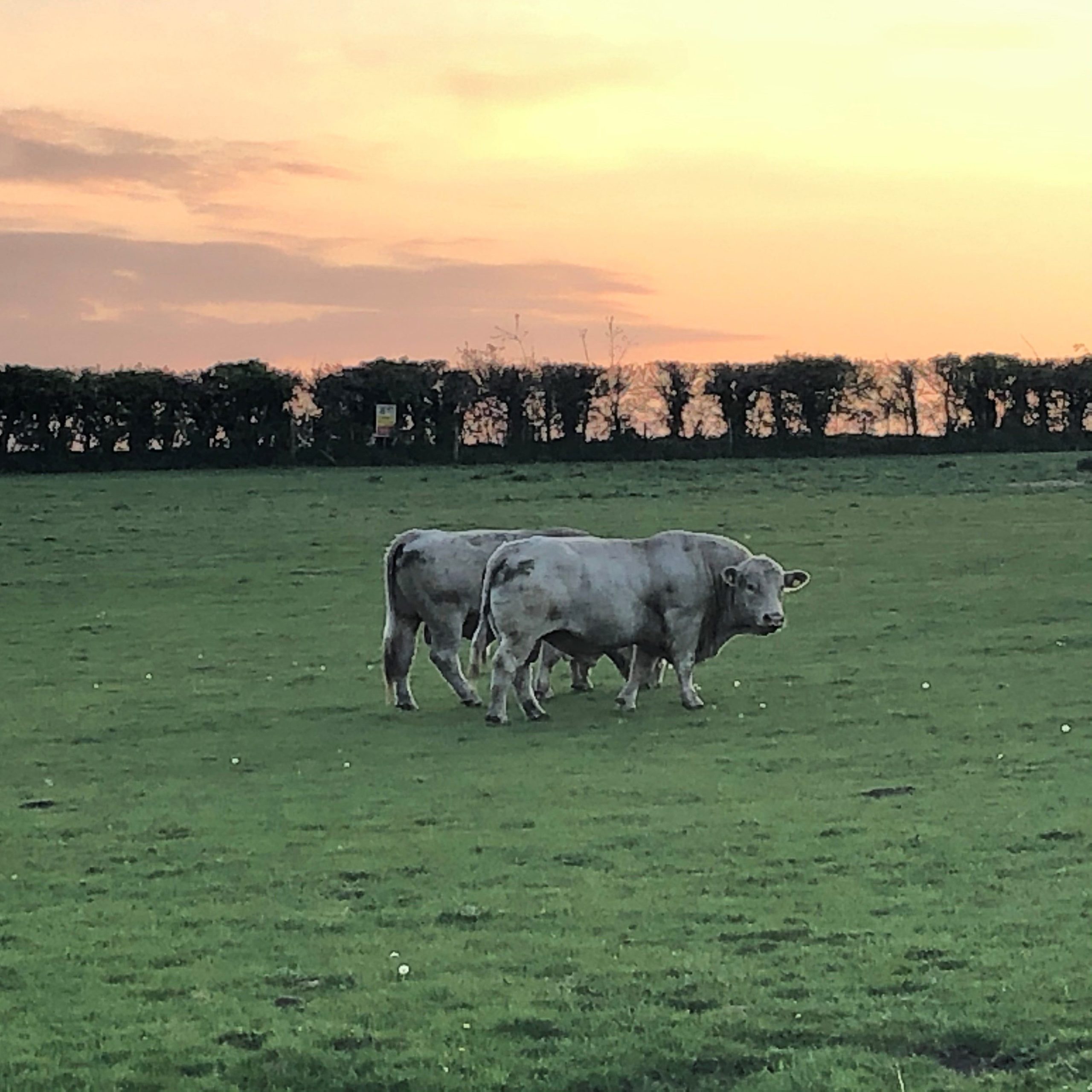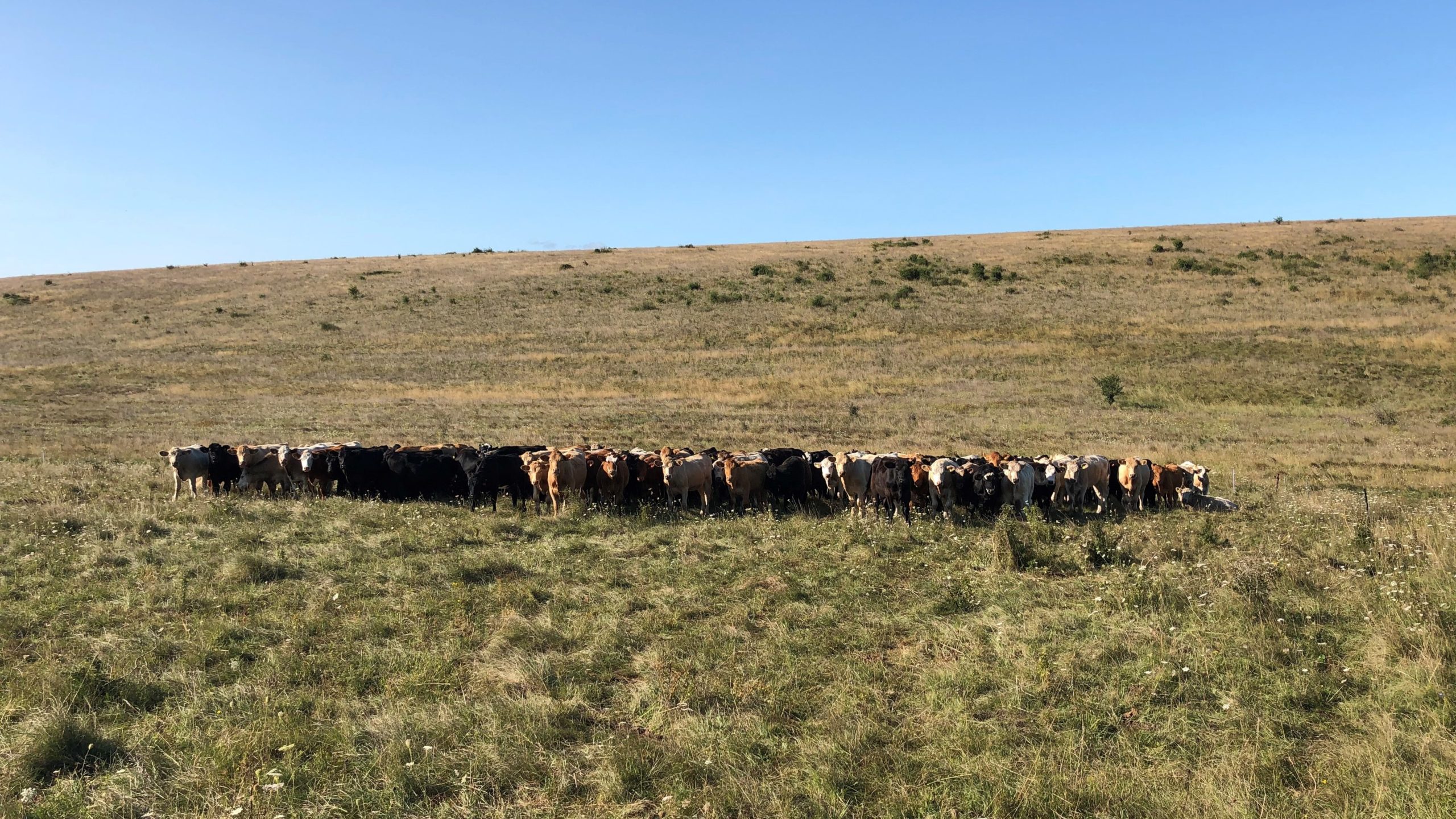A unique grazing agreement, that sees suckler cows facing helicopter landings, army tanks and firing ranges, has helped Wiltshire beef producer James Waight win the Beef Farmer of the Year award.

A tenant farmer on 4000ha of Salisbury Plain can bring many challenges, but his diligent herd management and careful work around land management on this organic unit, has been rewarded with national recognition for his job.
He runs 450 suckler cows, mostly South Devon x Angus, with Charolais bulls as the terminal sire. The herd is split into a spring and autumn block, with his 15 Charolais bulls running with the 350 spring calvers, and South Devon bulls used on the 100-odd autumn calvers to breed replacements. The herd has been ‘closed’ for six years now, enabling him to offer buyer, ABP, full traceability.
Enford Farm is about 15 miles north of Salisbury, and the predominantly chalk grassland is grazed all year round. It can be prone to drought, so grazing management is key, and James works closely with the MOD team and ecologists to raise profitable cattle at the same time as protecting and improving the environment. The area has 40 out of the 200 pairs of British stone curlews, and the grazing is species rich, containing many wildflowers, orchids and herbs, with little ryegrass or perennials. The aim is to only graze down to 5cms to allow healthy regrowth.
“This is the highest value chalk grass in Europe,” he says. “We protect it by grazing carefully and extensively. We rarely go over the same ground twice in any year.”
He says there’s enough grass to keep the cows going all year, with the fatteners fed rolled barley and lucerne silage with added yeast over the winter.
One of the usual aspects of the unit is the 20-acre electric fenced pens used to control the grazing. “Maintaining and moving the fencing is almost a permanent job,” says James. “We’re currently trying some virtual fencing with one group, and so far it seems to be working well.”
About five years ago he started buying his Charolais bulls from the Cockerington herd of Ralph and Alastair Needham in Louth, Lincolnshire, and says the purchases have been consistent and are of good quality.
“We’ve chosen a Charolais line with easier calving. Ours all calve outdoors, to we need to streamline the process. The need to get up and go. Their type ticks all our boxes. We need to get a live calf that grows well off grass, doesn’t need dehorning and grades well.”

He says these bulls are ‘producing the goods’ and most grade at |R. He’s still trying to get the finishing time down, but so far has reduced it from around 29 months to between 21 and 22 months with average weights of 350ks. “Looking ahead I’d like to bring the finishing time down to 18/20 months with the same weights,” he says.
Usually buying two bulls a year, he’s learnt to buy the better quality, pricier stock bulls, seeing how they can improve his returns. “Getting the balance right between growth rates and finishing, and time and grades is key, and that’s why I buy the best.”

He puts three or four bulls in with each group of 100 cows and has no temperament problems, finding they all get on well. They stay with their group for about 5 weeks before being rotated with another group.
“I always have a couple in reserve, if I see any flagging I switch them over. They go out around the 23 May and come back in the first or second week of August.”

What are his aims for the future? “I’m always trying to improve my genetics and streamline the finishing process. The way we manage the grazing is key as we look for more efficiency and better food conversion. We’re lucky to have an organic contract with ABP which gives us a premium, and we’re part of their home-bred scheme which is all about traceability.”
Describing his relationship with the MOD as ‘very interesting’ he says none of the cows bat an eyelid with any of the noise – be it shots and shells from the firing ranges, helicopters landing n their paddocks or tanks and lotrries driving through their fencing…
It is challenging at times, and I’ve learnt how important it is to have good people skills. I try to pick the right officers to have relationships, and we plan the areas we graze based on their training plans. About 90% of the time it works well, but there can be the odd occasion when something goes wrong!”
The farm trades as Sargent and Waight and James is in partnership with his father Bruce who runs the business overall, and his brother Henry who looks after the arable side. There and three full-time staff and several part time, and at busy times they all muck in and provide support where needed.
“The Charolais are the perfect terminal sire, in big demand from buyers, and have certainly given us the chance to successfully grow our suckler cow business.”

Categories: Commercial, News
Balmoral Show Results 2021 » « Caylers Charolais – A pedigree update courtesy of Harbro